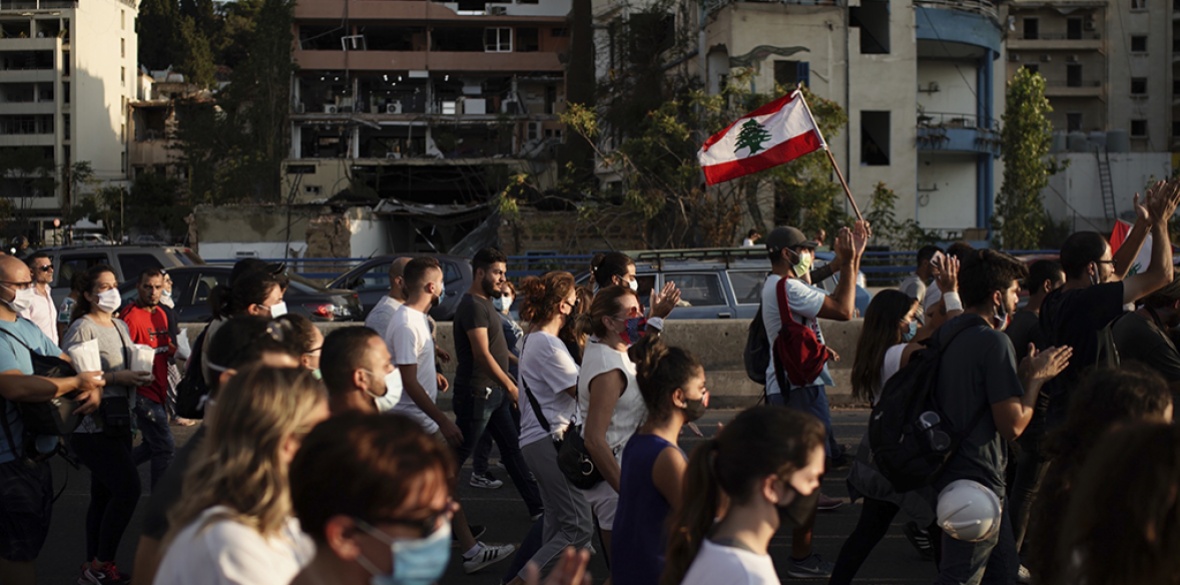This is the last article you can read this month
You can read more article this month
You can read more articles this month
Sorry your limit is up for this month
Reset on:
Please help support the Morning Star by subscribing here
LEBANESE citizens held a minute’s silence at 6.08pm today to mark a week since the devastating explosion that flattened much of Beirut.
The country’s entire government resigned on Monday night amid huge protests after documents came to light showing that top officials were aware of the enormous stockpile of ammonium nitrate being stored unsafely in a warehouse near residential areas but had not acted.
A probe into the disaster has been referred to the Supreme Judicial Council but commands little public credibility.
Protesters are calling for an “independent” cabinet not backed by the factions that usually control the country’s confessional political system, which reserves political positions for representatives of particular religious communities.
Lebanese Communist Party general secretary Hanna Gharib called for a “transitional government excluding the ruling system with exceptional legislative powers.”
He saluted “hundreds of thousands” who had taken to the street in protest “to overthrow the murderous political Establishment.
“All groups should unite to establish an alternative political forum ... the main responsibility is to build a national and democratic state, which can only be done by overthrowing the current political system,” he said.
The party condemned security forces for their “aggression” against demonstrators, calling for officers who have fired at crowds to be held accountable.
It also warned that sectarian forces were seeking to divide supporters of the uprising, pointing to the burning of the martyrs’ monument in Zraryeh that honoured the Lebanese National Resistance Front, the communist-led resistance organisation that fought Israeli occupation in the 1980s.
Mr Gharib expressed scepticism about the international conference to support Lebanon being hosted by France.
“Let us not forget that almost all Lebanon’s political factions have always been supported by the foreign powers who participated in this conference,” he warned, arguing that while there were obvious reasons for international aid to be delivered via non-official channels given the rampant corruption among Lebanon’s political class, the aid must not be used by foreign powers to “leverage their presence in the country and advance their agendas in Lebanon’s domestic affairs.”
His warning came as French and Italian investigators said that they had found more containers containing dangerous chemicals in their port clean-up effort.

 Ben Chacko
Ben Chacko









